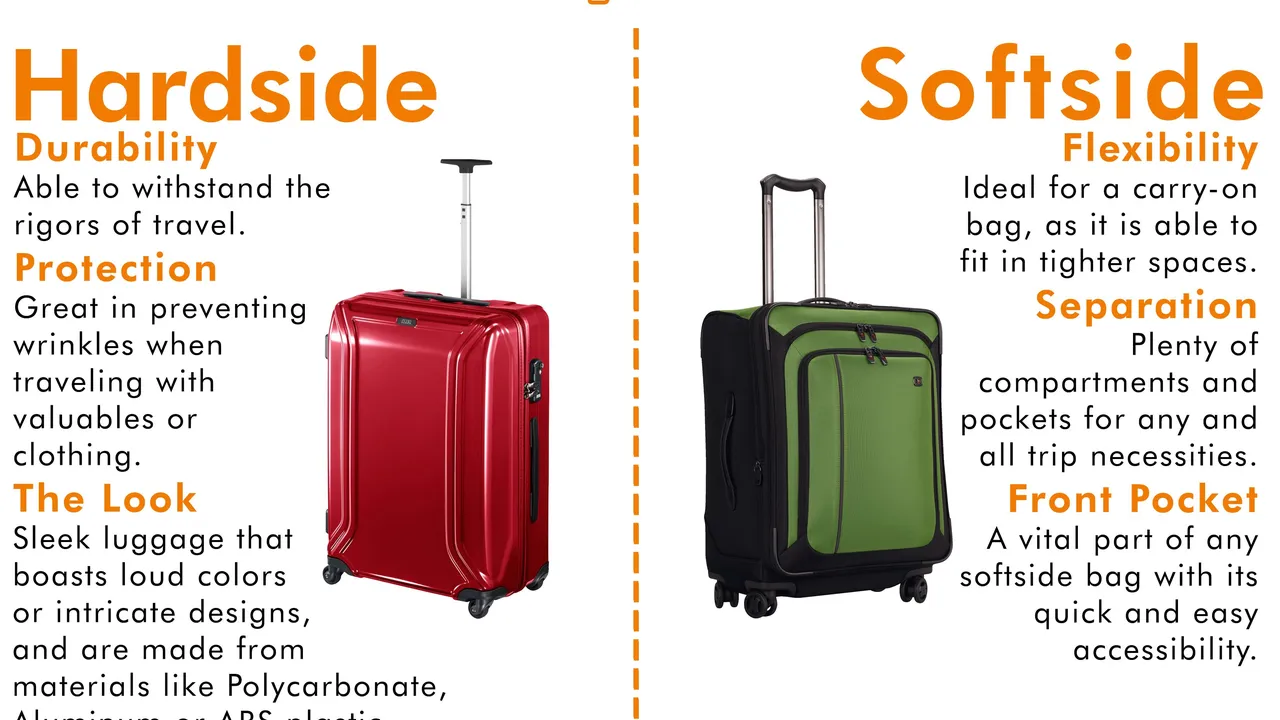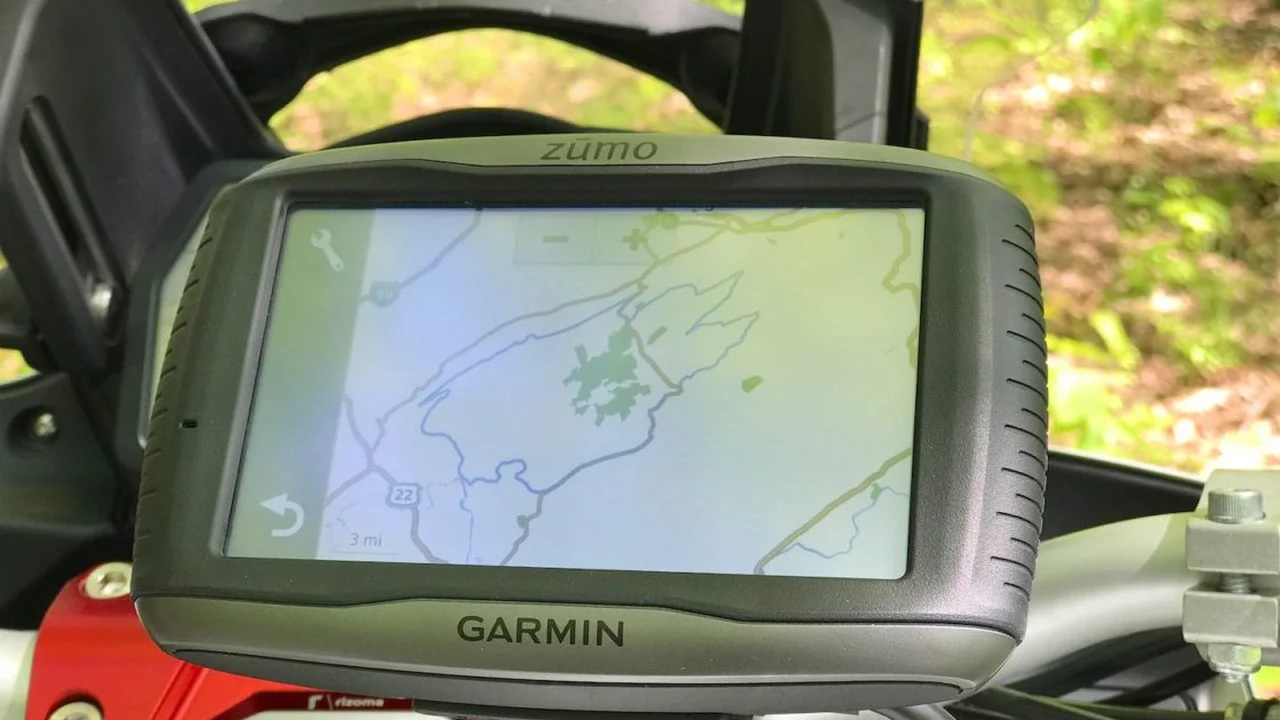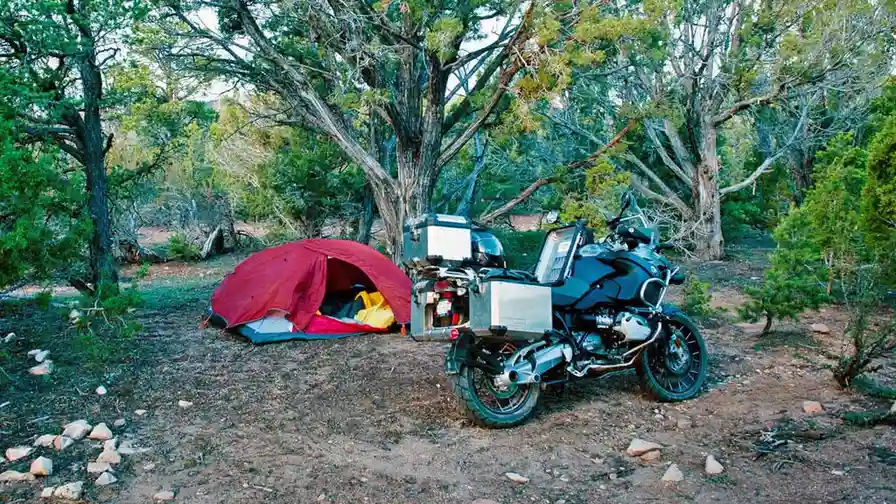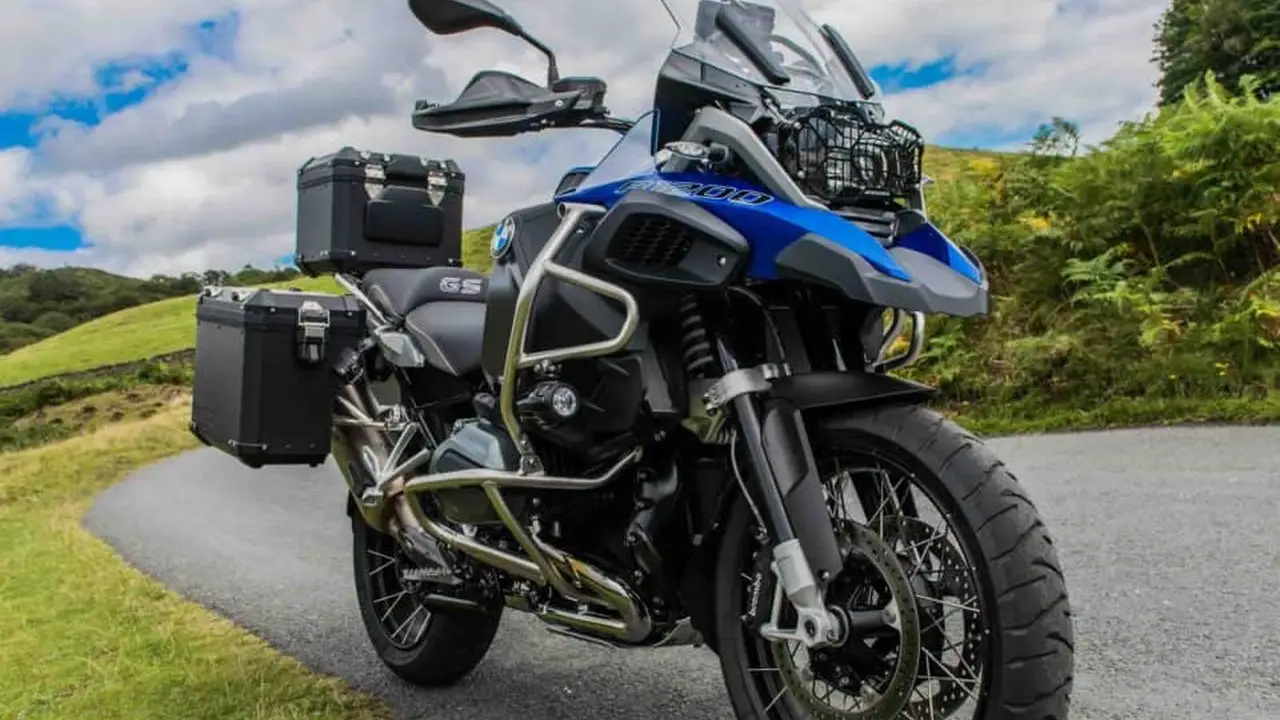ADV Luggage Systems: Soft vs. Hard Luggage
Exploring the world of adventure riding often leads to the critical decision of choosing the right luggage system. This article delves into the debate between soft and hard luggage options for ADV motorcycles, highlighting their pros and cons, various use cases, and essential factors to consider before making a purchase. We'll also explore specific product recommendations, compare different models, and provide pricing information to help you make an informed decision.

Choosing the right luggage for your adventure motorcycle can make or break your trip. The market offers a wide range of options, but the main contenders are soft luggage and hard luggage. Both have their advantages and disadvantages, and the best choice depends on your riding style, the type of terrain you'll be encountering, and your personal preferences.
Understanding ADV Motorcycle Luggage Types Soft Bags vs Hard Cases
Soft Luggage: Soft bags are typically made from durable, waterproof materials like ballistic nylon or Cordura. They are lighter than hard cases and often more flexible in terms of packing and mounting. They tend to be more forgiving in a crash, reducing the risk of serious injury to your legs. Think of brands like Mosko Moto, Giant Loop, and Kriega. These bags often feature roll-top closures for waterproofing and multiple attachment points for securing them to your bike.
Hard Luggage: Hard cases are usually constructed from aluminum or plastic. They offer excellent protection for your belongings and are generally more secure than soft bags. They are also more resistant to abrasion and damage from impacts. Brands like Touratech, Givi, and Jesse Luggage Systems are well-known for their hard cases. These cases typically feature locking mechanisms and integrated mounting systems.
Advantages of Soft Luggage for Adventure Touring and Off-Road Riding
One of the biggest advantages of soft luggage is its weight. It's significantly lighter than hard luggage, which can improve your bike's handling, especially in challenging terrain. Soft bags are also more flexible, allowing you to squeeze them into tight spaces or strap additional items to the outside. In a crash, soft luggage is less likely to cause serious injury because it's more likely to deform or break away from the bike. Plus, they are often cheaper than hard luggage.
Specific Advantages:
- Lighter Weight: Improves handling and fuel economy.
- Flexibility: Easier to pack and adapt to different loads.
- Crash Protection (to rider): Less likely to cause injury in a fall.
- Cost-Effective: Generally more affordable than hard luggage.
Disadvantages of Soft Luggage Durability and Security Concerns
While soft luggage offers many advantages, it also has some drawbacks. It's generally less durable than hard luggage and more susceptible to wear and tear. Soft bags are also less secure, as they can be easily cut open or stolen. Waterproofing can also be an issue, as some soft bags require additional liners or covers to keep your gear dry.
Specific Disadvantages:
- Lower Durability: More susceptible to damage and wear.
- Security Risks: Easier to cut open or steal.
- Waterproofing Challenges: May require additional liners.
Benefits of Hard Luggage Protection and Security for Your Gear
Hard luggage excels in protection and security. The rigid construction provides excellent protection for your belongings, shielding them from impacts, abrasion, and the elements. Hard cases are also more secure, offering locking mechanisms to deter theft. They are generally more waterproof than soft bags and require less maintenance.
Specific Advantages:
- Superior Protection: Protects gear from impacts and weather.
- Enhanced Security: Locking mechanisms deter theft.
- Waterproof Design: Keeps gear dry in wet conditions.
- Durability: Long lasting
Drawbacks of Hard Luggage Weight and Potential Injury Risks
The main drawbacks of hard luggage are its weight and potential for injury in a crash. Hard cases are significantly heavier than soft bags, which can negatively impact your bike's handling. In a crash, hard luggage can increase the risk of leg injuries, as it's less likely to deform or break away from the bike. They can also be more expensive than soft luggage.
Specific Disadvantages:
- Heavier Weight: Can negatively impact handling.
- Injury Risk (to rider): Increased risk of leg injuries in a fall.
- Cost: Generally more expensive than soft luggage.
Soft Luggage Product Recommendations Mosko Moto Reckless 80L and Giant Loop Great Basin Saddlebag
Mosko Moto Reckless 80L Revolver: The Mosko Moto Reckless 80L is a popular choice for adventure riders looking for a versatile and durable soft luggage system. It features a modular design, allowing you to customize the capacity to suit your needs. It's made from waterproof materials and features multiple attachment points for securing it to your bike. Price: [$699 USD]. Ideal for multi-day trips on technical terrain.
Giant Loop Great Basin Saddlebag: The Giant Loop Great Basin Saddlebag is another excellent option for adventure touring. It's a horseshoe-shaped bag that wraps around the rear of your bike, providing a large and stable carrying capacity. It's made from durable, waterproof materials and features multiple compression straps to keep your gear secure. Price: [$549 USD]. Great for long distance trips.
Hard Luggage Product Recommendations Touratech Zega Pro and Givi Trekker Outback Cases
Touratech Zega Pro Cases: The Touratech Zega Pro cases are renowned for their durability and security. They are made from high-strength aluminum and feature a robust locking mechanism. They are available in a variety of sizes to suit different bikes and riding styles. Price: [$1200 USD per set]. Best for serious adventure riding.
Givi Trekker Outback Cases: The Givi Trekker Outback cases are another popular choice for adventure riders. They are made from aluminum and feature a stylish design. They offer excellent protection for your belongings and are easy to mount and remove. Price: [$900 USD per set]. Great for touring on and off road.
Comparing Soft and Hard Luggage Performance Durability and Price
Durability: Hard luggage generally offers superior durability compared to soft luggage. Aluminum cases can withstand significant impacts and abrasion, while soft bags are more susceptible to tears and punctures. However, some high-end soft bags are surprisingly durable and can hold up well to demanding conditions.
Price: Soft luggage is typically more affordable than hard luggage. A complete set of soft bags can often be purchased for less than half the price of a comparable set of hard cases. However, the price difference can vary depending on the brand and features.
Performance: For technical off-road riding, soft luggage is generally preferred due to its lighter weight and flexibility. Hard luggage can make a bike feel top-heavy and unstable, especially on challenging terrain. However, for long-distance touring on paved roads, hard luggage can offer a more comfortable and secure carrying solution.
Choosing the Right Luggage for Your Adventure Riding Style and Terrain
The best luggage choice depends heavily on your riding style and the type of terrain you'll be encountering. If you primarily ride off-road and value lightweight and flexibility, soft luggage is likely the better option. If you prioritize security and protection and mainly ride on paved roads, hard luggage may be a better fit.
Consider these factors:
- Riding Style: Off-road vs. on-road.
- Terrain: Technical trails vs. paved highways.
- Trip Length: Short weekend trips vs. long-distance tours.
- Budget: How much are you willing to spend?
Installation and Mounting Considerations for ADV Luggage Systems
Both soft and hard luggage require a secure mounting system. Soft bags typically attach to the bike using straps and buckles, while hard cases require a dedicated rack system. Ensure that the mounting system is compatible with your bike and that it's properly installed before you hit the road.
Mounting Tips:
- Check Compatibility: Ensure the rack or mounting system is compatible with your bike model.
- Proper Installation: Follow the manufacturer's instructions carefully.
- Secure Straps: Make sure all straps are tightened and secured.
- Regular Checks: Inspect the mounting system regularly for wear and tear.
Waterproofing Techniques and Solutions for Soft and Hard Motorcycle Luggage
Waterproofing is crucial for keeping your gear dry and protected. Hard cases are generally more waterproof than soft bags, but even hard cases can leak in heavy rain. Soft bags often require additional liners or covers to ensure complete waterproofing.
Waterproofing Tips:
- Use Liners: Use waterproof liners inside your soft bags.
- Waterproof Covers: Invest in waterproof covers for your bags.
- Seal Seams: Seal any seams or openings with waterproof tape.
- Regular Inspection: Check your bags regularly for leaks.
Maintenance Tips for Extending the Life of Your Motorcycle Luggage
Proper maintenance can significantly extend the life of your motorcycle luggage. Clean your bags regularly with mild soap and water. Inspect them for wear and tear and repair any damage promptly. Store your bags in a dry place when not in use.
Maintenance Tips:
- Regular Cleaning: Clean your bags with mild soap and water.
- Inspect for Damage: Check for tears, punctures, or loose straps.
- Repair Promptly: Repair any damage as soon as possible.
- Proper Storage: Store your bags in a dry place.
User Reviews and Real-World Experiences with Different Luggage Options
Before making a purchase, it's always a good idea to read user reviews and learn from the experiences of other riders. Online forums and review sites can provide valuable insights into the pros and cons of different luggage options. Pay attention to reviews that discuss durability, waterproofing, and ease of use.
Read Reviews:
- Online Forums: Check out adventure riding forums for user reviews.
- Review Sites: Read reviews on reputable motorcycle gear sites.
- Consider Feedback: Pay attention to both positive and negative feedback.
:max_bytes(150000):strip_icc()/277019-baked-pork-chops-with-cream-of-mushroom-soup-DDMFS-beauty-4x3-BG-7505-5762b731cf30447d9cbbbbbf387beafa.jpg)






